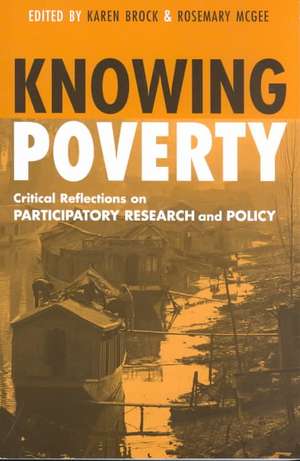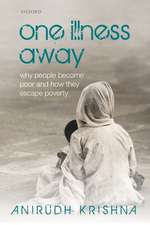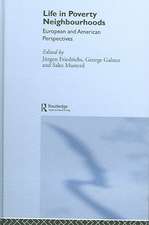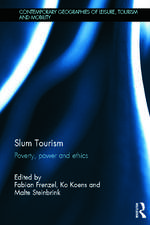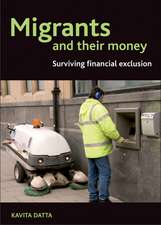Knowing Poverty: Critical Reflections on Participatory Research and Policy
Editat de Rosemary McGeeen Limba Engleză Paperback – apr 2002
Preț: 181.81 lei
Nou
Puncte Express: 273
Preț estimativ în valută:
34.79€ • 36.41$ • 28.96£
34.79€ • 36.41$ • 28.96£
Carte tipărită la comandă
Livrare economică 31 martie-14 aprilie
Preluare comenzi: 021 569.72.76
Specificații
ISBN-13: 9781853838941
ISBN-10: 1853838942
Pagini: 224
Dimensiuni: 156 x 234 x 17 mm
Greutate: 0.53 kg
Ediția:New.
Editura: Taylor & Francis
Colecția Routledge
Locul publicării:Oxford, United Kingdom
ISBN-10: 1853838942
Pagini: 224
Dimensiuni: 156 x 234 x 17 mm
Greutate: 0.53 kg
Ediția:New.
Editura: Taylor & Francis
Colecția Routledge
Locul publicării:Oxford, United Kingdom
Cuprins
Introduction: Knowing Poverty: Critical Reflections on Participatory Research and Policy * The Self in Participatory Poverty Research * Participatory Analyses of Poverty Dynamics: Reflections on the Myanmar PPA * Learning from Uganda's Efforts to Learn from the Poor: Reflections and Lessons from the Uganda Participatory Poverty Assessment Project * Who is Listening? The Impact of Participatory Poverty Research on Policy * Power, Knowledge and Policy Influence: Reflections on an Experience * Retelling Worlds of Poverty: Reflections on Transforming Participatory Research for a Global Narrative * Conclusion: Participatory Poverty Research: Opening Spaces for Change * Index
Notă biografică
Karen Brock is a researcher at the Institute of Development Studies (IDS), University of Sussex. She has carried out research on natural resources management and agro-pastoral livelihoods in Africa, and is currently focusing on policy-making for poverty reduction, and the political economy of knowledge construction.Rosemary McGee is a social development specialist with a background in anthropological research on poverty and policy, poverty assessment methodologies and policy advocacy. She is currently a fellow at IDS, working mainly on civil society participation in policy processes.
Recenzii
'This book earns an important place among the growing number of critiques and auto-critiques of participatory development activities.''the authors challenge not only how poor people's perspectives on poverty are given 'voice' through PPR methods, but also perhaps more importantly, how powerful global dvelopment actors 'listen' to these voices.'Canadian Journal of Development Studies
